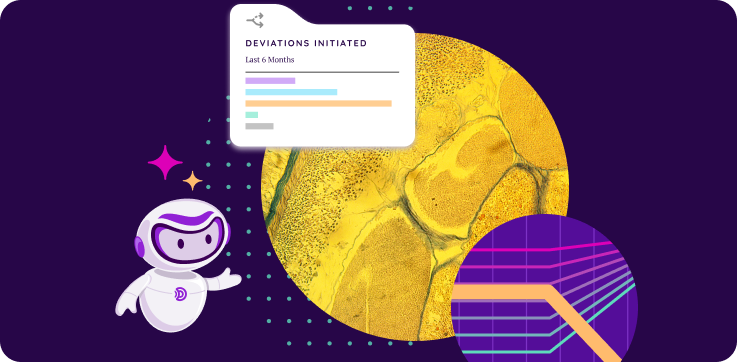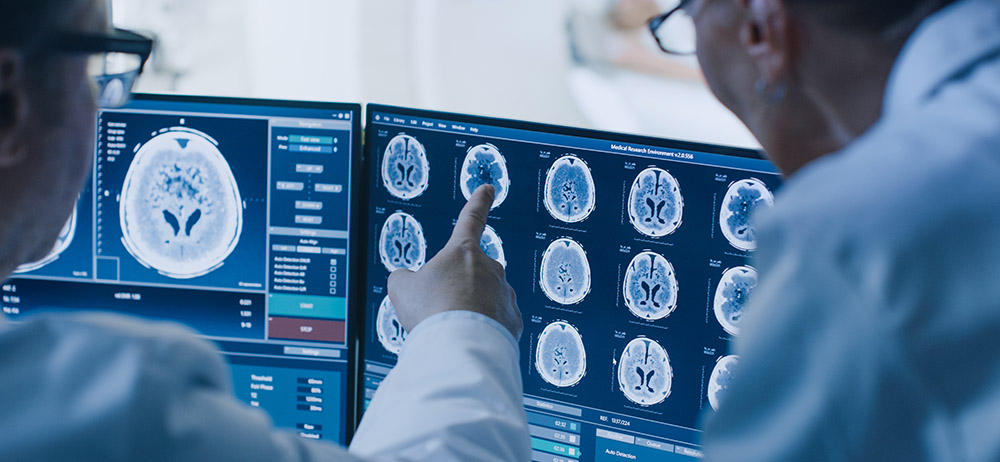
Artificial Intelligence (AI) has revolutionized many industries, and the life science industry is no exception. AI will change the way we discover, develop, and deliver healthcare.
Here are five ways AI will change the life science industry:
1. Drug Discovery
Drug discovery is a complex and expensive process that involves identifying potential drug targets, designing and synthesizing compounds, testing their safety and efficacy in animals and humans, and obtaining regulatory approval. The process can take many years and cost billions of dollars, and often results in failure.
However, AI has the potential to revolutionize drug discovery by reducing the time and cost of drug development.
AI algorithms can analyze vast amounts of data from different sources, including genetics, proteomics, metabolomics, and clinical trials, to identify novel drug targets and potential drug candidates.
One example of how AI is transforming drug discovery is the use of machine learning algorithms to identify new drug targets. Machine learning algorithms can analyze large data sets of genetic and protein interactions to identify targets that are involved in disease pathways. This approach has led to the discovery of new drug targets for diseases such as Alzheimer’s and cancer.
Another way that AI is revolutionizing drug discovery is by designing drugs that are more effective and have fewer side effects. AI can use computational methods to predict the properties of a drug molecule, such as its solubility, toxicity, and bioavailability. This can help researchers design drugs that are more likely to be successful in clinical trials and have fewer side effects.

2. Personalized Medicine
Personalized medicine is an emerging approach to healthcare that aims to provide patients with treatments that are customized to their unique genetic and medical characteristics. This approach has the potential to improve patient outcomes by reducing adverse reactions to medications and ensuring that patients receive the most effective treatments.
AI plays a critical role in making personalized medicine a reality. Machine learning algorithms can analyze large data sets of patient information, including genomic data, medical history, and environmental factors, to identify patterns that are not visible to the human eye. These patterns can then be used to predict the risk of disease, personalize treatment plans, and optimize dosages.
One of the key benefits of AI-powered personalized medicine is that it can help healthcare providers identify patients who are at high risk of developing certain diseases before symptoms appear.
This allows for early intervention and the use of preventive measures to reduce the likelihood of developing the disease.
AI can also be used to personalize treatment plans for patients who have already been diagnosed with a disease. By analyzing patient data, AI algorithms can identify which treatments are likely to be most effective for each individual patient, reducing the need for trial and error in treatment selection.
Another benefit of AI-powered personalized medicine is that it can optimize the dosages of medications. AI algorithms can take into account a patient’s genetic makeup, medical history, and other factors to determine the optimal dose of a medication for each patient. This reduces the risk of adverse reactions and ensures that patients receive the most effective treatment.
Personalized medicine powered by AI has the potential to revolutionize healthcare by providing patients with customized treatments based on their unique genetic and medical characteristics. This approach can improve patient outcomes, reduce healthcare costs, and ultimately save lives.

3. Medical Imaging
Medical imaging plays a critical role in healthcare, enabling healthcare providers to visualize and diagnose a wide range of medical conditions. However, the interpretation of medical images can be challenging, and errors can have serious consequences for patient outcomes.
AI-powered medical imaging has the potential to improve the accuracy and efficiency of diagnoses. AI algorithms can analyze medical images and identify patterns and abnormalities that are not easily visible to the human eye. For example, AI can detect tiny nodules on lung scans that might otherwise be missed by radiologists. This can lead to earlier detection of disease and more effective treatment.
AI can also assist radiologists in diagnosing complex medical conditions such as cancer. By analyzing large data sets of medical images, AI algorithms can learn to identify subtle patterns and changes that are indicative of disease. This can help radiologists make more accurate diagnoses and reduce the risk of misdiagnosis.
In addition to improving accuracy, AI-powered medical imaging can also reduce the time needed for interpretation. Traditionally, radiologists must review large volumes of medical images to make a diagnosis.
This can be a time-consuming and labor-intensive process.
AI can help automate parts of the analysis, allowing radiologists to focus on the most important aspects of the diagnosis. This can save time and reduce the risk of errors.
Another benefit of AI-powered medical imaging is that it can help to standardize diagnoses across different healthcare providers and locations. By using consistent algorithms and protocols, AI can help ensure that diagnoses are consistent and accurate, regardless of the location or expertise of the radiologist.
Overall, AI-powered medical imaging has the potential to transform healthcare by improving the accuracy and efficiency of diagnoses. By detecting abnormalities that are not visible to the human eye and assisting radiologists in making more accurate diagnoses, AI can help to improve patient outcomes and save lives.

4. Clinical Trials
Clinical trials are a critical component of the drug development process, but they can be time-consuming, expensive, and often fail to produce successful outcomes. AI-powered clinical trials have the potential to improve the efficiency and success rate of clinical trials by identifying potential participants, predicting the likelihood of success, and optimizing trial design.
AI algorithms can analyze large data sets to identify individuals who meet specific criteria for clinical trials. This can speed up the recruitment process, which is often a major bottleneck in clinical trials. By identifying potential participants more quickly, AI can help researchers enroll a diverse patient population and increase the chances of success.
AI can also predict the success of clinical trials based on past data. By analyzing data from previous trials, AI can identify factors that are associated with successful outcomes and use this information to predict the likelihood of success for future trials. This can help researchers make more informed decisions about which trials to pursue and which to abandon.
AI can optimize the design of clinical trials to increase the likelihood of success.
By analyzing data from past trials, AI can identify factors that are associated with successful outcomes and use this information to design trials that are more likely to succeed. This can include optimizing the dosing of medications, selecting the most appropriate patient population, and identifying the most effective endpoints to measure.
Overall, AI-powered clinical trials have the potential to transform the drug development process by improving the efficiency and success rate of clinical trials. By identifying potential participants more quickly, predicting the likelihood of success, and optimizing trial design, AI can help researchers bring new drugs to market more quickly and at a lower cost, ultimately benefiting patients and improving healthcare outcomes.

5. Healthcare Operations:
Healthcare operations are critical for providing quality care to patients while managing costs effectively. AI can help healthcare providers optimize their operations by analyzing vast amounts of data to identify patterns, trends, and insights that can improve patient outcomes and reduce costs. Here are some ways AI can assist in healthcare operations:
- Patient flow management: AI can analyze patient data to predict patient demand, which can help providers manage patient flow more effectively. For example, AI can help providers determine the number of patients likely to need a specific procedure and allocate resources accordingly. This can help reduce wait times, increase throughput, and improve patient satisfaction.
- Staff scheduling: AI can analyze historical data on staff scheduling and use predictive analytics to optimize staffing levels. This can help providers reduce costs and improve patient outcomes by ensuring that the right staff is available at the right time to meet patient needs.
- Remote patient monitoring: AI can enable remote patient monitoring, which allows healthcare providers to track patient health metrics, such as blood pressure, heart rate, and oxygen levels, in real-time. This can help providers intervene before a condition worsens, reducing the need for hospitalization and improving patient outcomes.
- Predictive maintenance: AI can help healthcare providers maintain medical equipment, such as MRI machines and ventilators, by analyzing data to predict when equipment is likely to fail. This can help providers reduce downtime, improve patient outcomes, and reduce costs associated with emergency repairs.
- Fraud detection: AI can help healthcare providers detect fraud by analyzing vast amounts of data to identify anomalies and patterns that may indicate fraudulent activity. This can help providers reduce costs associated with fraudulent claims and improve overall system integrity.
AI can help healthcare providers optimize their operations by providing real-time insights and analysis of large amounts of data. This can help reduce costs, improve patient outcomes, and enhance overall system efficiency.
Bottom line
In conclusion, AI has the potential to transform the life science industry by improving drug discovery, personalized medicine, medical imaging, clinical trials, and healthcare operations. AI can help reduce costs, improve patient outcomes, and provide better care that is tailored to each patient’s needs. As AI technology continues to evolve, we can expect to see even more innovation in the life science industry in the future.
Bonus
This blog post was written mainly by AI.


